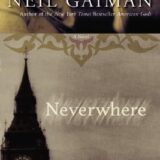 Today we are lucky enough to host the critically acclaimed science fiction author Ty Franck. Ty writes as one half of the artificial construct known as James S.A. Corey. Together with his co-author, Daniel Abraham, Ty has introduced the world to the science fiction universe known as the Expanse. Ty enjoys the fresh air of New Mexico on a daily basis, where he also works alongside a fantasy author known as George R.R. Martin. When not pummeling the enter key on his keyboard, Ty spends his time organizing statewide jousting tournaments and chasing down escaped dire wolves that are menacing the local villagers.
Today we are lucky enough to host the critically acclaimed science fiction author Ty Franck. Ty writes as one half of the artificial construct known as James S.A. Corey. Together with his co-author, Daniel Abraham, Ty has introduced the world to the science fiction universe known as the Expanse. Ty enjoys the fresh air of New Mexico on a daily basis, where he also works alongside a fantasy author known as George R.R. Martin. When not pummeling the enter key on his keyboard, Ty spends his time organizing statewide jousting tournaments and chasing down escaped dire wolves that are menacing the local villagers.
R.K. TROUGHTON FOR AMAZING STORIES: Welcome to Amazing Stories, Ty. The history of science fiction is filled with masterful collaborations. The Grand Master Frederik Pohl himself partnered with several different authors under a handful of pen-names to great success. In June 2013, you and Daniel Abraham are preparing to release the third novel in your Expanse series, Abaddon’s Gate. Please share with us how you and Daniel met and what led to the formation of your partnership known as James S.A. Corey (and for that matter how you decided upon that particular pen-name).
TY FRANCK: That’s a lot of different questions in one. I first met Daniel at Bubonicon in Albuquerque, New Mexico. I was visiting a friend, and I accompanied her to the convention. She was in a writing group with Daniel, so we were in the same rooms a lot. I admit to at first not paying much attention to him, but then he bought me lunch, so we became best friends. I am not an expensive person to buy.

When I later moved to New Mexico so my wife could attend university there, Daniel and I wound up living quite close to each other. I joined his writer’s group, his wife and my wife started hanging out, it all just sort of evolved naturally. But the short version is, I’d been running a paper and dice RPG for a few New Mexico friends, and Daniel and his wife wanted in. So I ran a campaign for them in what later became the Expanse setting. He was excited by the setting and all the world building I’d done for it, and asked if I’d let him write a novel in it. I demanded to do half the work because I’m stupid, and we started Leviathan Wakes.
The pen name is just Daniel’s middle name, my middle name, and his daughter’s initials. It is intended to have the same sound as those grouchy SF writers of the 70’s who drank too much at conventions and berated their fans. Daniel and I both love those guys.
ASM: Besides your upcoming novel, there have been two previous novels, a novella, and some short stories published about the Expanse. Some of our readers may not yet be familiar with the universe you’ve created. Please give us a taste of what they can find there.
TF: The series so far includes Leviathan Wakes, Caliban’s War, and the upcoming Abaddon’s Gate. We’ve also published two short stories: The Butcher of Anderson Station, and Drive. There’s a novella length work called God’s of Risk out, too.
The Expanse is based on two thoughts I had: Why is there so little SF written in the period between near future Earth-bound SF, and far future galaxy spanning civilization SF? And, what is the scariest possible explanation for Fermi’s Paradox? So we’re telling the story of a mid-level human civilization that spans several planets in our home solar system, but is beginning to move out into a galaxy that is a far scarier place than it could have imagined.
ASM: We understand that the Expanse hatched from the deep recesses of your mind as a setting for a roleplaying game you ran. (BTW: The next time you have an open slot at the game table, drop me a line—have dice, will travel.) Please tell us about the labor pains associated with your world-building, and if you don’t mind, whisper the name of the game system you were using.
TF: I’d been tinkering with a setting using a heavily modified version of the open source D20 system. I’d tested a few ideas with a forum based game I ran for some friends of mine (who are thanked in the acknowledgments of the first book). It seemed to work fairly well as a game setting, so when another friend of mine (the same one that introduced me to Daniel, so really the Expanse is entirely her fault) asked me to help her develop a setting for an MMORPG, I offered her a variation of the Expanse universe. I put a lot of work into fleshing out the bones of the setting and creating unique locations for game events to occur. The video game project fell through, but I really liked the material I had, so I continued to run paper games in it.
ASM: So here you are getting ready to publish the third novel in your writing career, alongside Daniel, and you look up to check the tally sheet. The first novel, Leviathan Wakes, was nominated for the Hugo and Locus awards for best science fiction novel. The second novel, Caliban’s War, has been nominated for the 2013 Locus Award for best science fiction novel. That’s pretty heady stuff. I can imagine some mornings you just take two steps out of bed and collapse on the floor in disbelief before you ever get your slippers on. How does all this success make you feel?
TF: It can be a bit surreal, especially since I call myself the Accidental Novelist. I’d always dreamed of being a game designer, but to have a game turn into a series like the Expanse was unexpected. Honestly, though? I’ve been around the block a few times. I was managing large companies before I was forty. I’d helped start a successful business, I’d helped take two private companies public. I’d had some success in the business world, but I’d left all that behind to semi-retire while my wife pursued her dreams. So I tend to view success like this as both humorous and potentially fleeting. I’ll have fun being a novelist right up until it isn’t fun any more, then I’ll move on.
Mostly I am enormously grateful to the people who buy and enjoy the books enough to talk about them, vote for them, share them with their friends. You don’t get to expect or demand that from people, and you definitely can’t buy it. It’s freely given or not at all. That gift, the one the fans give, is the one that most leaves me amazed. It’s also the one thing I never want to take for granted.
ASM: Do you ever feel pressure from your success? Do you feel the anxiety of needing to live up to the high bar you and Daniel have set?
TF: See my note about not taking the fans for granted. Yes, you want to keep delivering books that are good enough to satisfy the people who’ve bought the previous books. You want to deliver on all the promises you made. There’s a certain amount of pressure that comes with that.
ASM: I wrote my first short stories as part of a fourth grade class assignment. They were very brief and clearly from the literary craftsmanship of a fourth grader. Please tell us about the first story you ever wrote—how old were you, what was it about, and do you still have a copy of it hidden away?
TF: All my early stories were notes and settings for games. D&D, Star Frontiers, Gamma World, Deadlands, I was a fanatic. I’d spend hours creating locations and characters. I’d have whole conversation trees planned out in my head. Everything I know about story telling, for better or worse, comes from that.
 ASM: As some of our readers have learned, I got hooked on science fiction and fantasy through reading Conan comic books. What drew you into the genre?
ASM: As some of our readers have learned, I got hooked on science fiction and fantasy through reading Conan comic books. What drew you into the genre?
TF: A collection of stories my aunt bought for me as a kid that included The Stars My Destination. It was way too adult for me, but it hit at exactly the right time to reprogram my brain. I’ve never read anything since that so powerfully affected my sense of storytelling aesthetic, except for possibly Lord of Light. But I was much older when I read that, so I was less malleable.
ASM: Besides Daniel Abraham and George R.R. Martin, what authors have influenced you the most, and what are you reading now?
TF: Obviously, Alfred Bester and Roger Zelazny. But I also grew up reading a lot of Asimov, Heinlein, Bradbury, Ellison. The greats. I’m actually not influenced by George much. I’d been a fan of his short fiction before I started working for him, but hadn’t read his novels beyond the first couple Ice and Fire books. He and I have a very different storytelling style. It’s sparked some great arguments between us on what constitutes good fiction. In fact, George has taught me far more about the business of publishing than about writing. I think there’s this idea that because I work in his office, he’s some sort of writing mentor or something, but nothing could be further from the truth. Our office conversations are about contracts, taxes, real estate, that sort of thing.
And, embarrassing admission, I’d never actually read anything by Daniel Abraham before we met. Now, he’s become a huge influence since then, of course. He’s taught me everything about writing a novel I know. But that’s fairly recent.
ASM: I hear speculation all the time on how various writing collaborations work. We understand that each has its own unique dynamics. Please explain to us how the writing process manifests itself between you and Daniel.
TF: I’m in charge of the big plot arcs and the setting. When we plot out a novel, I tell Daniel what I think should happen, then together he and I start chopping it up. We pick our POV characters, trying to find the people who are most involved in the interesting bits. We do a very limited outline of the plot. We then break it into five acts, and do a much more detailed outline of the first act. We start putting POVs into chapters. We dig into the details, and we have a lot of long rambling conversations about the coolest things we can fit into each act and chapter.
Daniel is brilliant at structure, so he starts pulling on the threads of my big story to see which ones are loose and which ones are solid. We drop things. We add new things. At some point, we’ve got a one act outline with all the info we need to start writing. Once that’s in place, we get together and plot out two chapters. This is really detailed stuff, and a lot of back and forth conversation happens. At that scene by scene level, Daniel is really orchestrating more than I am. His sense of story at the scene level is very acute. After we’re happy with the two chapters, we sit down and write them. We pass the completed chapter to the other person, who then edits it. I edit Daniel, he edits me. This part is a bit unusual in that our agreement is that no word is precious, and we have to have the right to make changes without argument. So far, it’s worked out just fine. And, I think it’s what ultimately causes us to have such a unified voice for the books. James Corey doesn’t sound like Daniel, he doesn’t sound like me. Jimmy has his own voice.

ASM: We understand that your work behind the curtain with the Wizard of Awes must remain confidential, and we do not wish to violate that trust. By now we’ve all heard the rumors that George secretly has a full-sized replica of the Iron Throne in every room, including the water closet. We also know that he requests everyone to address him as Lord Martin, while he dines on lemon cakes and listens to minstrels play “The Bear and the Maiden Fair”. Setting aside those rumors and without breaking any oaths, give us a tidbit of one of the craziest, funniest, or most profound moments you’ve experienced through your relationship with George. We can imagine frothing fans, mob-ruled conventions, and remote film sets could become quite surreal.
TF: Yeah, I don’t talk about that stuff. What happens at the Fevre River Packet Company stays at Fevre River. But the most surreal George related moment was standing on a cliff overlooking the ocean in Malta, while D.B. Weiss played guitar, and Iain Glen sang Ziggy Stardust. He was wearing a full suit of plate and mail while he sang. Not the sort of thing you’d see anywhere but traveling with GRRM.
ASM: A few well-placed Song of Ice and Fire fans demand that I ask the following question. If you had to pick one house from Westeros, great or small, to pledge your sword to, which would it be and why?
TF: I’d be a Red Priest. Setting things on fire is awesome.
ASM: In the last several years the publishing industry has undergone some tectonic shifts. Major booksellers have closed their doors. EBooks have slowly begun to encroach upon the domain of traditional publishing. What do you see as the future of the publishing industry?
TF: No idea. But I can not stress enough how awesome having a good publisher is. I think people should pursue success wherever they can find it, and I have no problem if their path is not traditional. But man, I would not want to do this s**t without the amazing support of a great agent and a publisher covering my back. My first three books are international best sellers, in thirteen languages and seventeen countries. No way I could have done that on my own. If someone can, all the power to them. But I don’t think traditional publishers are going anywhere, personally. And I don’t want them to. I don’t want any particular e-book vendor running a publishing monopoly.
 ASM: For those fans of the Expanse who are eagerly wringing their hands in anticipation of the June release of the third novel, what comes next? What is the future of the Expanse, and what can they look forward to for the rest of 2013 and beyond?
ASM: For those fans of the Expanse who are eagerly wringing their hands in anticipation of the June release of the third novel, what comes next? What is the future of the Expanse, and what can they look forward to for the rest of 2013 and beyond?
TF: Abaddon’s Gate comes out in June in English, with international editions to follow. After that, we have three more books under contract. We’re writing the fourth book right now. Besides the three additional novels, we have four more novellas coming out over the next three years or so.
In addition, we have a non-Expanse short story called A Man Without Honor coming out in the anthology Old Mars from Gardner Dozois and George RR Martin. It’s our riff on Edgar Rice Burroughs. We had a lot of fun with it.
ASM: Do you foresee James S.A. Corey writing even more fiction outside the Expanse?
TF: All of SF is open to him, if he has a mind.
ASM: What’s ahead for Ty Franck apart from your collaboration with Daniel?
TF: Putting my wife through a PhD program, mostly. But I’m in negotiations on a number of possibilities in the gaming world, which is still my first love.
ASM: Thank you for your time. We know that James S.A. Corey will continue to pull fans into his collective gravitational well. We are excited to watch the Expanse grow and build upon the foundation that has already been set in place. Before you go, is there anything else you would like to share with the readers of Amazing Stories?
TF: Happy to see another short fiction market available. We need more of that, and that’s one thing electronic publishing has definitely given us, more widely available short fiction. Makes me happy.











Looking forward to reading “Leviathan Wakes”. Great interview.
Read the first two Expanse novels and love them and was honored to be a Hugo loser along with “Leviathan Wakes” last year. 🙂
The one question that wasn’t asked is how can we see the short Expanse stories. Are they only available in e-format or is a collection being planned?